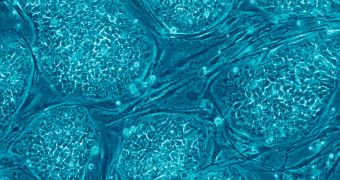Increasing the efficiency and resilience of stem cells is one of the main goals in regenerative medicine today, and a team of experts may have just made an important step forward in making this a reality.
The research team, based in the United Kingdom, conducted a series of investigations on human embryonic stem cells (hESC), which are the most promising stem cells that can be used for studies.
These are the precursor cells for any other cell type in the human body, and are the first to develop after fertilization of the egg takes place.
The investigators were able to develop a new technique that allows for ESC to survive in larger numbers, and for longer periods of time.
This is a very important breakthrough, because if the cells live longer, than experts seeking to develop new therapies and drugs based on their functions will have a lot more time to conduct their research.
At this time, everything having to do with ESC needs to be done in a hurry, before the cells die off. They usually do so when they are isolated. The cells also cannot the implanted because the connections keeping them attached to each other fail.
This severely limits their use in basic research and in drug investigations. By making the cells live longer and more stable, the UK team basically ensured that more investigations will be conducted on ESC from now on, with potentially groundbreaking results.
The work was carried out by investigators at the University of Dundee, in Glasgow and the Heriot-Watt University, in Edinburgh, AlphaGalileo reports.
In this investigation, the scientists used a high-content ESC array to screen through a wide variety of libraries containing ‘lead-like’ small molecules and known bioactives.
They discovered that K+-ATP channel opener called pinacidil also plays a role in promoting the survival of ESC, in addition to it s role in ion channel pharmacology.
These lead molecule are apparently capable of promoting the survival of three different ESC lines. “These findings bring us one step closer to realizing the immense potential of human stem cells for therapeutic benefit,” says Bart Vanhaesebroeck.
The expert is the Deputy Chair for the BJ ChemBio Knowledge Environment section of the esteemed Biochemical Journal, where the researchers published their findings.

 14 DAY TRIAL //
14 DAY TRIAL //